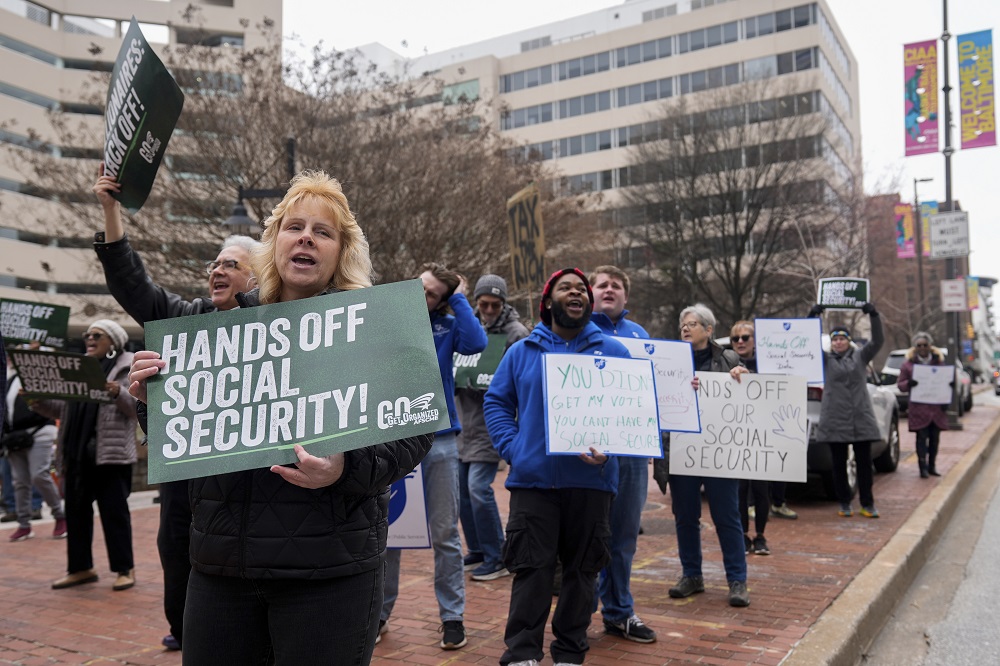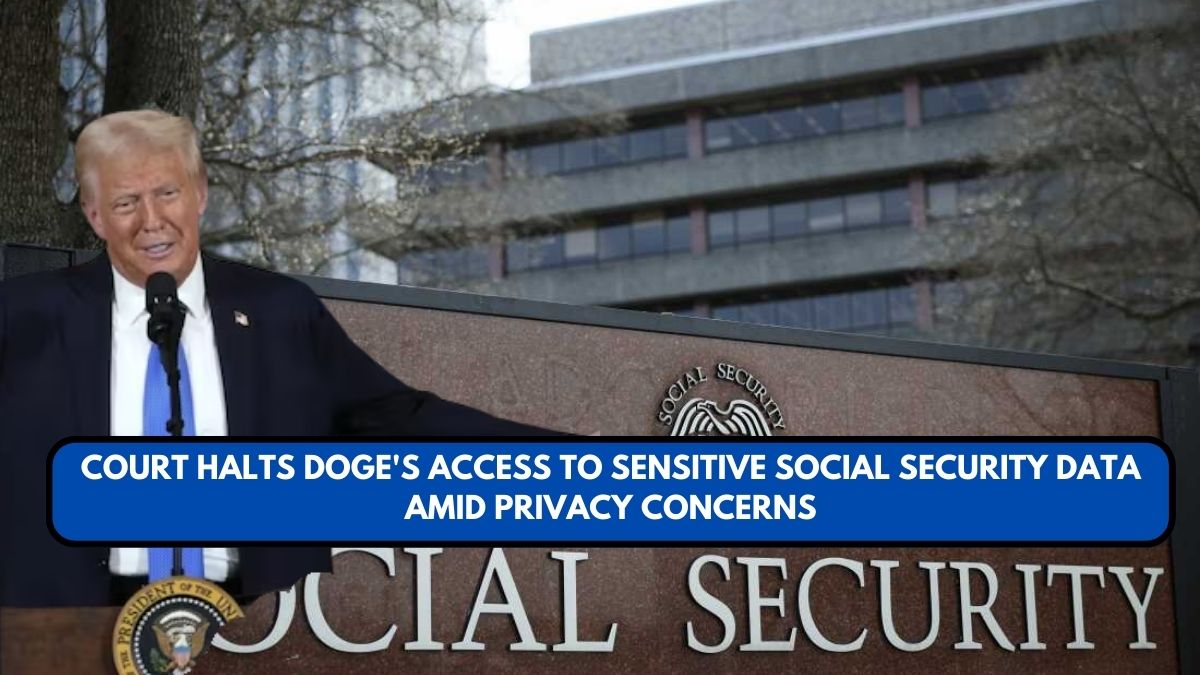A U.S. District Court has temporarily blocked Elon Musk’s Department of Government Efficiency (DOGE) from accessing sensitive personal data stored by the U.S. Social Security Administration (SSA).
This move has raised serious concerns over privacy violations and security risks associated with unmonitored access to federal records. The case highlights significant challenges in balancing government efficiency with safeguarding citizens’ private information.
The Court’s Ruling and Its Implications

On April 18, 2025, U.S. District Judge Ellen Hollander issued a preliminary injunction, preventing DOGE from accessing Social Security data that contains personal information of millions of Americans.
The ruling came after a lawsuit filed by labor unions and advocacy groups, including the American Civil Liberties Union (ACLU), which argued that DOGE’s actions violated the Privacy Act and other federal privacy protections.
According to the judge, DOGE’s broad request to access SSA systems amounted to a “fishing expedition” without any clear justification.
Judge Hollander’s decision emphasized that the public’s right to privacy is paramount, particularly when dealing with highly sensitive information such as Social Security numbers, medical records, and financial details.
These privacy concerns have made it clear that there must be limits on who can access personal information and how it is used, even when the data is being reviewed for waste and fraud prevention.
The ruling effectively prevents DOGE staff from accessing non-anonymized data related to Social Security records. However, the court allowed DOGE access to redacted or anonymized data, provided that staff members receive appropriate background checks and training to ensure compliance with privacy laws.
This decision has been seen as a compromise, balancing the need for government oversight with protecting individuals’ sensitive information.
Government’s Position and DOGE’s Mission
The Trump administration has defended DOGE’s efforts, claiming that the department’s goal is to identify inefficiencies, waste, and fraud in federal programs, including those administered by the SSA.
According to administration officials, DOGE’s mission is to streamline government processes and reduce wasteful spending. However, the government’s position has raised alarms about the extent to which such initiatives may infringe upon privacy and constitutional rights.
Supporters of DOGE’s mission argue that streamlining data access could help eliminate redundancies and increase efficiency in government operations. Yet, critics point out that without proper oversight and safeguards, the abuse of such power could lead to devastating breaches of citizens’ privacy.
Legal Battle and Potential Consequences
The court’s ruling is a significant moment in the ongoing debate over government access to private data. Although this is a temporary injunction, it is expected that the case will continue through the courts, with the potential for appeals.
Advocacy groups have expressed hope that the ruling will set a precedent for limiting unchecked government access to personal data, especially when no clear, immediate need is established.
The legal battle also raises questions about the future of government transparency and oversight. As agencies like the SSA continue to manage vast amounts of personal information, there is an increasing demand for tighter security measures and stricter controls on who can access such sensitive data.
The outcome of this case could have lasting implications for the way federal agencies handle personal data and the public’s trust in how that data is used.
Privacy Concerns and Public Trust
The lawsuit against DOGE has underscored the importance of protecting individuals’ privacy rights in an age where data is an increasingly valuable commodity.
As government agencies rely more heavily on data to streamline services and combat fraud, there are growing concerns about how this data is used and who has access to it. Privacy advocates stress that without clear regulations and oversight, personal information could be at risk of exploitation or misuse.
The ruling serves as a reminder that government actions, even those aimed at increasing efficiency, must always be balanced with safeguarding the public’s privacy and security.
Citizens must be able to trust that their personal data will be handled with the utmost care and that they will not be subject to unnecessary scrutiny or surveillance.
Looking Ahead: What’s Next for DOGE and SSA
The ongoing litigation over DOGE’s access to Social Security data will continue to unfold in the coming months. As the case progresses, it is expected that legal challenges will focus on defining the limits of government access to sensitive personal data.
The decision made in this case could serve as a benchmark for future cases involving the balance between government efficiency and privacy rights.
For now, the injunction has paused DOGE’s access to the SSA’s records, but the final outcome of this case could shape the future of federal data management and privacy protections.

External Sources and Relevant Links
- Social Security Administration – Official website for the SSA, detailing privacy policies and data security measures.
- American Civil Liberties Union (ACLU) – Advocacy organization involved in the lawsuit against DOGE.
This article has been carefully fact-checked by our editorial team to ensure accuracy and eliminate any misleading information. We are committed to maintaining the highest standards of integrity in our content.

Deepak Grover is a dedicated content writer at OTE News, specializing in government affairs, public policy, and current events. With a keen eye for detail and a passion for factual reporting, he ensures readers receive accurate and insightful news. Deepak holds a degree in Political Science and has experience in research-driven journalism.
When not writing, he enjoys reading historical books, exploring hiking trails, and staying updated with global political trends. His commitment to ethical journalism makes him a trusted voice at OTE News.




